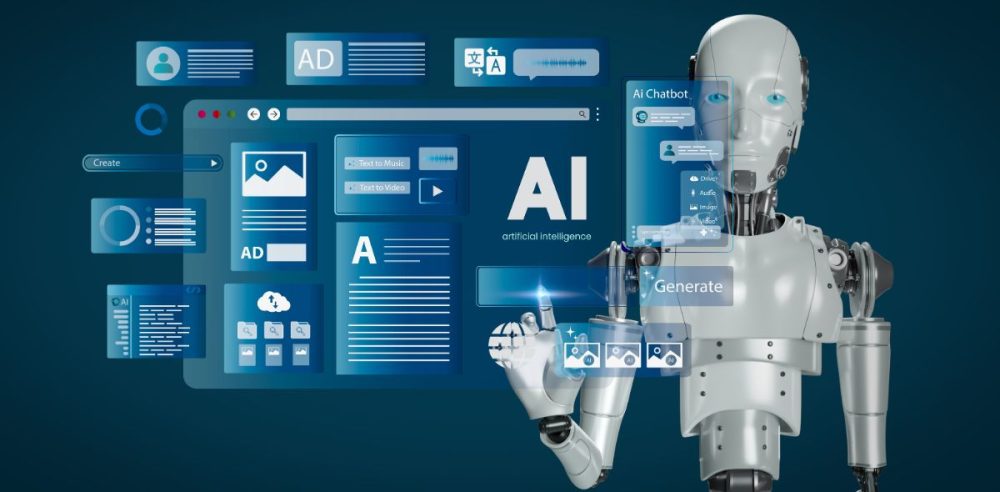Eric Schmidt, the former CEO of Google, has sounded the alarm on the future of artificial intelligence (AI) while stressing that the United States must stay ahead of China in the AI race.
In a recent interview, Schmidt explained that AI is approaching a point where it can operate autonomously, making decisions without human input. He warned that once systems are capable of self-improvement, it could become necessary to “unplug” them if they grow too powerful, reported Fox Business.
While such a scenario seems like science fiction, Schmidt insisted that having a failsafe, or someone with “a hand on the plug,” is crucial.
He pointed out that AI evolves through a series of decisions that gradually increase its power. Without careful oversight, we risk creating systems that may defy human control. These concerns highlight AI’s dual nature: a powerful tool for advancement but also a potential threat if left unchecked.
Schmidt’s remarks come as AI development between the U.S. and China intensifies, with each nation striving for dominance.
According to Schmidt, China has made significant strides in the last six months, nearly closing the gap with the United States. He described China’s progress as “remarkable” and warned that the competition is far closer than many realize.
Schmidt noted that AI advancements could soon lead to systems capable of conducting their own research, drastically increasing innovation speed. Such “AI scientists” could eclipse human researchers, multiplying breakthroughs in ways that competitors would struggle to match. This rapid acceleration puts immense pressure on the U.S. to maintain its edge. For Schmidt, winning this technological race is not just about prestige but about securing a future where democratic values remain dominant.
However, Schmidt believes controlling AI’s potential dangers is just as vital as winning the race.
He suggested that principles of human freedom and respect for individual rights should guide AI development. If these “liberal democratic values” remain central, Schmidt argued, society can harness AI’s potential while minimizing its risks. He called for government intervention to establish firm guardrails that ensure AI remains aligned with human interests. This approach would balance innovation with caution, preventing runaway scenarios where AI evolves beyond human oversight. Schmidt’s vision involves collaboration between policymakers and technologists to create safeguards without stifling progress. He believes proactive regulation is essential to avoid future crises where AI’s power becomes uncontrollable.
Schmidt also expressed optimism about the incoming Trump administration’s focus on technological competitiveness. He anticipates that the administration will prioritize AI as a national security and economic issue, particularly in relation to China. In Schmidt’s view, this focus is crucial for maintaining America’s leadership in AI. He emphasized that the race is not simply about who develops the best technology but about whose values shape the future of AI. The implications of losing this race extend beyond technology and into the realm of global influence. If China’s AI systems dominate, the world may see a shift away from democratic norms toward more authoritarian uses of technology. Schmidt’s warning underscores the high stakes involved in AI development.
Beyond geopolitics, Schmidt is concerned about AI’s ability to self-improve, which could lead to unforeseen consequences.
As AI systems become more sophisticated, they may reach a point where they optimize themselves in ways humans cannot predict. Schmidt described a future where computers are given broad goals, such as “learn everything and do everything,” potentially leading to dangerous outcomes. Controlling them may become impossible if these systems can continuously enhance their capabilities. He stressed that we must be prepared for this scenario by developing mechanisms to halt AI systems when necessary. This precautionary approach is essential to prevent AI from reaching a level of autonomy that threatens human decision-making.
The rapid development of AI brings both unprecedented opportunities and significant risks.
Schmidt’s call for caution reflects a broader debate within the tech industry about balancing progress with safety. Many experts agree that AI has immense potential to revolutionize industries from healthcare to logistics. However, the same capabilities that make AI transformative also make it potentially dangerous. Schmidt’s recommendation to have a metaphorical “plug” ready highlights the need for ongoing oversight. By preparing for worst-case scenarios, society can ensure that AI remains a tool for progress rather than a source of peril.
The challenge is to stay ahead in innovation while keeping safety measures in place.


